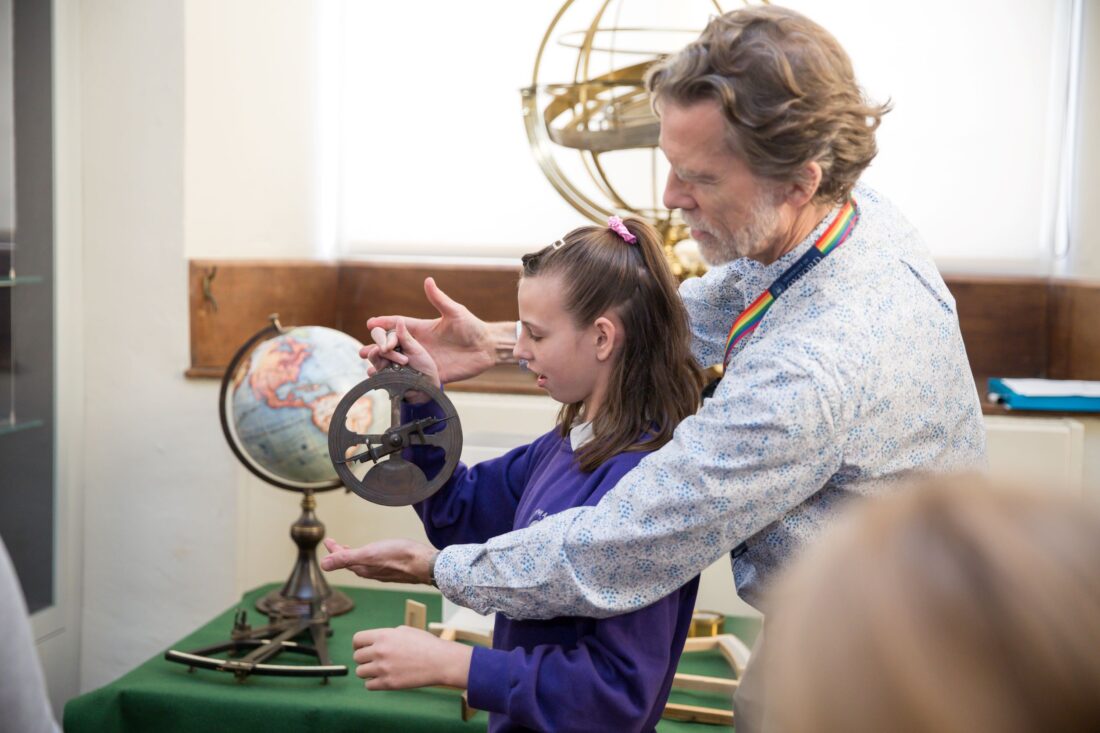Community partnerships

Community partnership working is one of the best ways to develop and test ideas, build staff confidence and get to know your local SEND audience and their families. Projects are often funded as part of one off grants initially but can then blossom into long lasting relationships with tangible benefits on both sides and require less or no funding at all.
Five years ago, SEND engagement in museums was barely evident and largescale partnerships rare. One of the earliest to develop this type of community partnership was between Oxford University’s Gardens, Libraries and Museums (GLAM) and a local SEND school. The work that they have developed has gone on to win awards and recognition both in the museum and education sectors for the social impact it has made on staff and students alike. The partnership has recently been cited as a best practice case study in the Durham Commission Report on Creativity and Education (October 2019)
Lead by Miranda Millward, this model of working has now secured funding to embed SEND engagement within staffing at the museum consortium and maintains a working partnership with the Iffley Academy. The project outlined below was with a school partner, but you could develop this way of working with a Local Authority provider such as Portage, SEND activity group or even SEND families to create a community partnership with your museum.
Overview of the SEND school and Museums partnership at GLAM
Iffley Academy is a community special academy for children and young people with complex special educational needs and disabilities (SEND). The Oxford University’s Gardens, Libraries and Museums (GLAM) have been working with staff and students from this local school to co-develop and co-deliver a programme of creative learning opportunities and project work based around the University’s collections.
Aims
It is widely evidenced that participation in structured arts activities boosts children’s cognitive ability, supports their emotional and physical wellbeing, contributes to prosocial behaviour and increases their employability. However, children with SEND are statistically least likely to take part in creative experiences outside school as families can be deterred by emotional, medical and logistical challenges as well as by the perception that cultural venues may not be accessible and welcoming.
The innovative partnership between GLAM and Iffley Academy sets out to challenge this accepted norm. It aims to create equitable access to cultural venues for children with SEND so that they feel comfortable and confident in these spaces. Cultural learning is placed at the heart of the school curriculum so that it informs teaching across all subjects, including both maths and science. The partnership also encourages students to actively consider careers in the arts and cultural sector.
Activity
Led by GLAM arts engagement officer Miranda Millward in partnership with senior staff at the school, the co-constructed programme is designed to familiarise the students with cultural venues in an accessible way and facilitate their participation in creative projects.
The students are first introduced to the museums and libraries through virtual walk-throughs of the galleries and objects being brought into the school. This enables the students to familiarise themselves with the venues and the collections in a supportive environment. Guided visits then follow, led by members of GLAM staff who have spent time in the school getting to know the students.
Following their visit, the students undertake a range of creative projects, often with the support of artists who run workshops at the school. The students then go on to design their own exhibitions and organise private views, which are attended by school and GLAM staff as well as members of the wider school community.
Impact
All of the students involved in the project gained Arts Award qualifications and the programme had a significant impact on the day-to-day lives of the students. The cultural opportunities created by the programme, enhanced their social skills and self-confidence, leading to their placing greater value on social interactions over processes
The project has also transformed teaching practice at the school embedding Cultural learning at the heart of the curriculum, while many teachers plan their own trips to the museums and engage directly with the venues to develop their own projects. They have gained a sense of ownership of their local cultural spaces and are more confident about the contributions they and their students can make to the cultural sector.
For Gardens, Libraries, and Museums (GLAM), the partnership has resulted in a more diverse audience of young people, and a greater focus on making the venues more accessible and welcoming to special educational needs and disabilities (SEND) children and their families.
Here is a film with Miranda Millward talking more about creating sustainable partnerships.
Another SEND community project example is the Tyne and Wear Archives and Museums (TWAM) and a SEND girl’s school about body and identity. It is a sensitive topic which uses collections to address the subject well.
HER story not history Bamburgh School girls club PP combined.pdf


